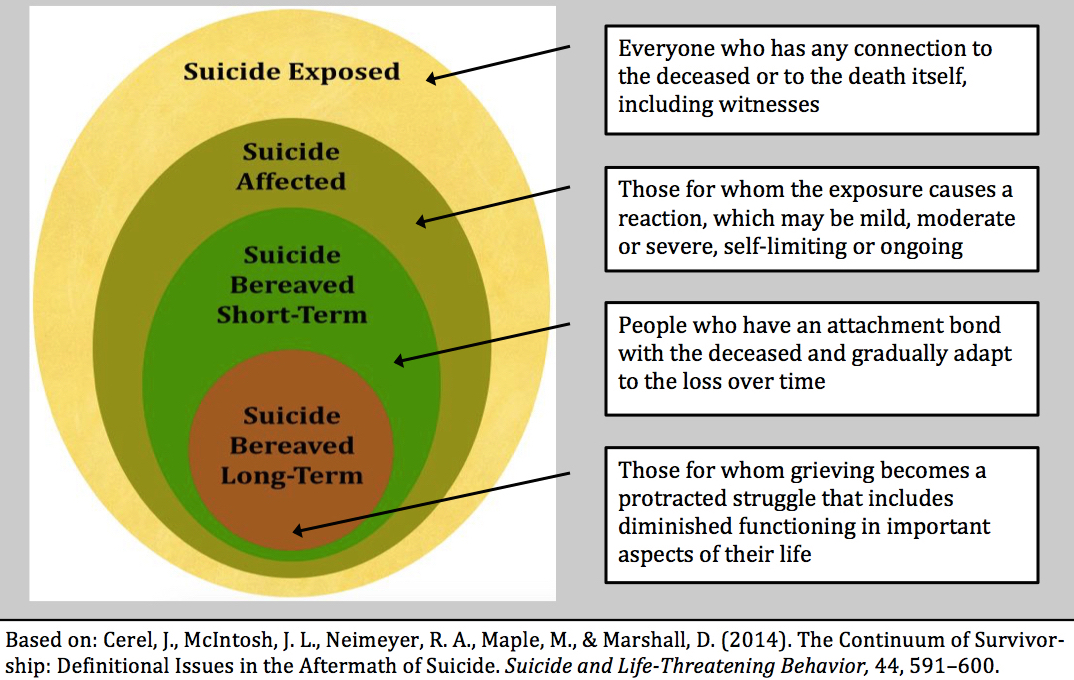By Franklin Cook
A historic document, Responding to Grief, Trauma, and Distress After a Suicide: U.S. National Guidelines, was announced earlier this month at the Association for Death Education and Counseling conference in San Antonio and at the American Association of Suicidology conference in Atlanta. The Grief After Suicide blog -- in an upcoming series of posts -- will cover a number of ways that this groundbreaking document is paving the way for reinventing postvention in America. For instance, the guidelines:
• Summarize research evidence showing that exposure to suicide unquestionably increases the chances that those exposed -- perhaps especially the bereaved -- are at higher risk for suicide as well as for numerous, sometimes debilitating mental health conditions
• Highlight the effects of a fatality on people beyond family members of the deceased, including friends, first responders, clinicians, colleagues, and others (even entire communities) who may require support in the wake of a suicide
• Describe a new framework for classifying people who experience a suicide (Exposed, Affected, Short-Term Bereaved, and Long-Term Bereaved) that will help focus research and guide the development of programs and services to meet the unique needs of specific populations (see the graphic at bit.ly/continuummodel)
• Advocate for a systems approach, through organizing interventions into three separate, overlapping categories:
• Immediate Response: Based on mental-health crisis and disaster response principles
• Support: From the familial, peer, faith-based, and community resources that help the bereaved cope with a death
• Treatment: By licensed clinicians for conditions such as PTSD, Depression, and Complicated Grief
• Argue that suicide bereavement is unique because death by suicide is unique (i.e., it involves questions about the deceased's volition, the effects of trauma, the degree that suicide is preventable, and the role of stigma in people's treatment of the deceased and the bereaved)
• Present an outline of the research needed to expand and enrich what is known about suicide bereavement and other effects of suicide (which will lead to the development of evidence-based practices in suicide postvention)
• Assert that suicide grief support efforts ought to be informed by research and clinical advances over the past 20 years in the fields of bereavement support, traumatology, and crisis and disaster preparedness
• Include an appendix outlining numerous, practical resources for the suicide bereaved and those who care for them (please link to the expanded, online version of the resource clearinghouse)
An excerpt of the guidelines (Table of Contents, Executive Summary, Acknowledgements, Preface) is available at bit.ly/excerptsosl, and the complete document is available at bit.ly/respondingsuicide. The guidelines were created by the Survivors of Suicide Loss Task Force of the National Action Alliance for Suicide Prevention.

 RSS Feed
RSS Feed